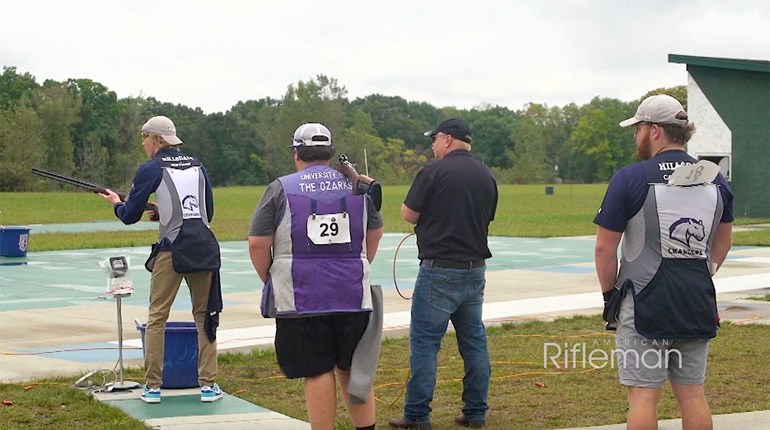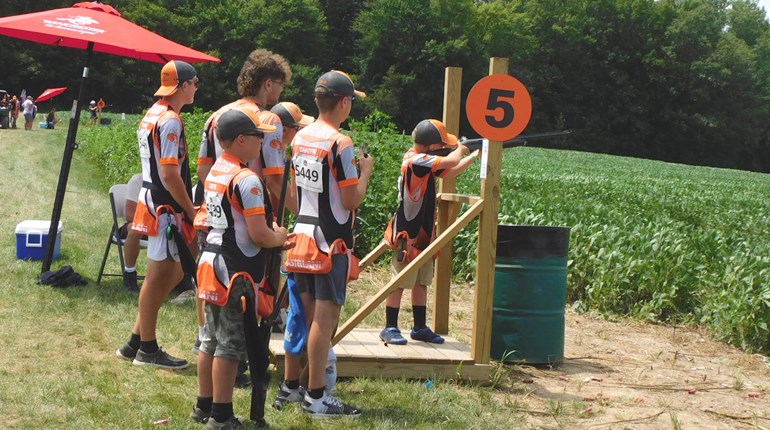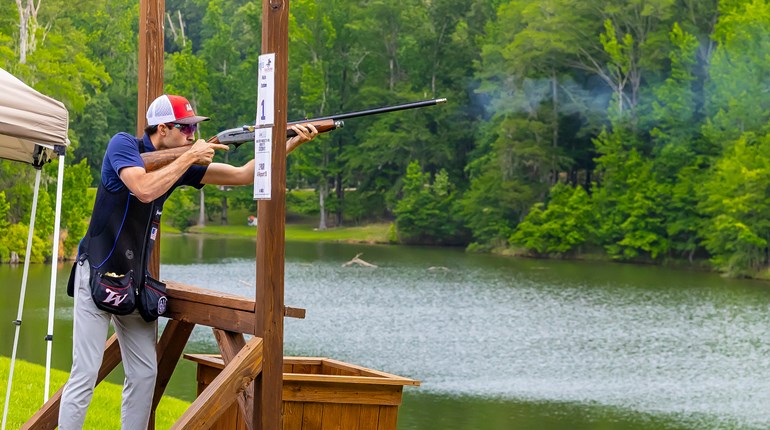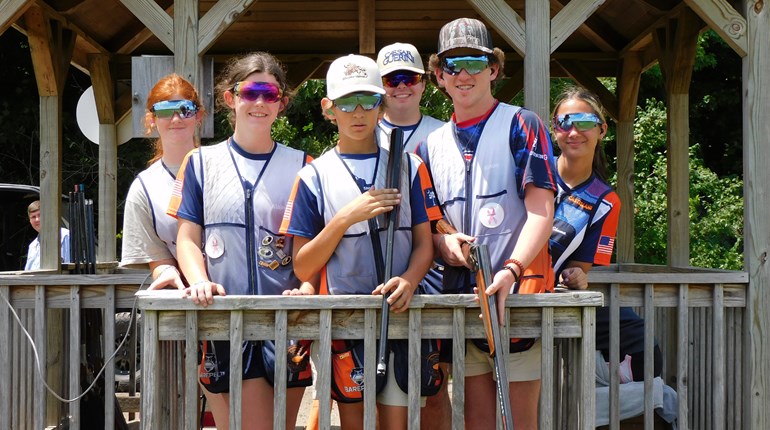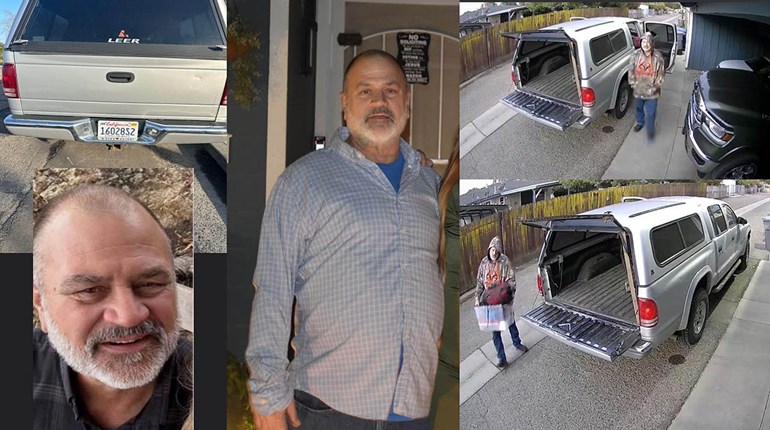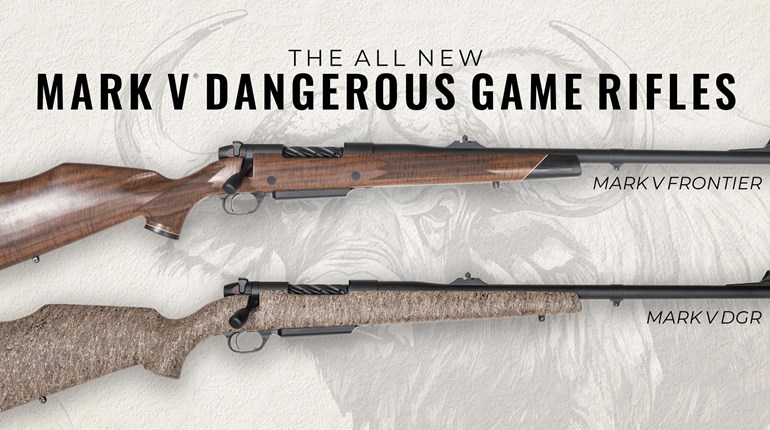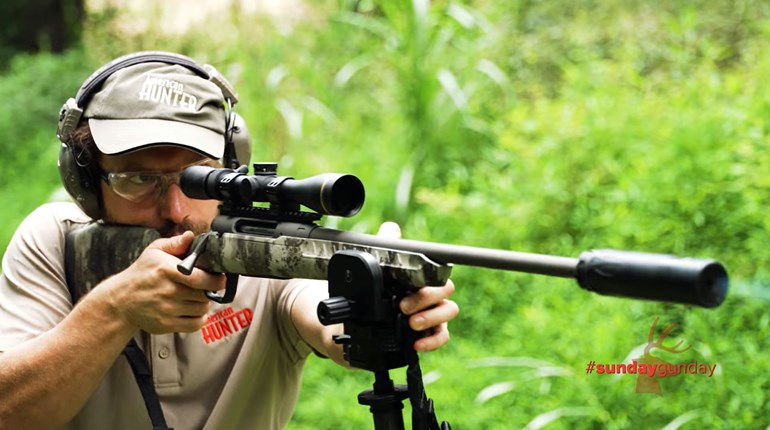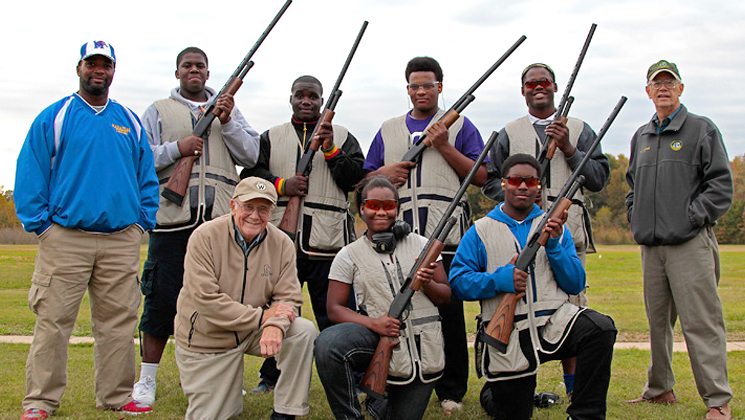
As we get older, many of us turn our thoughts to the blessings we've received. How, we wonder, can we pass those blessings on to others? For Memphis, Tenn.'s Jim Crews, that question was resolved one afternoon about a year and a half ago, while relaxing at the Memphis Sport Shooting Association (MSSA). "MSSA allows the local Scholastic Clay Target Program (SCTP) teams to practice there, charging only for the targets they use," he relates, "and it's fun to see those young folks and how they come along." All of a sudden, an idea popped into his mind. "I don't know if the good Lord put it there," he chuckles, "but I think so." You see, clay target shooting is the fastest-growing high-school sport in Tennessee, with about 300 participating students in the Memphis area alone. At the time, however, all of the teams were from suburban and private schools. "I got to thinking, what if we could take that sport to an inner-city school?" says Crews.
Crews already knew the positive impact that safe, responsible shooting sports participation can have on a young person, because it's the story of his life. His father had taken him for his first duck hunt when he was eight years old, and he now goes on family hunts with his son and grandsons. He's always been dedicated to introducing young people to the shooting sports. "If we don't introduce kids to the shooting sports, they may not do it on their own, and we'll lose their participation." That, he emphasizes, "would be a tragedy." With the realization that there was an entire segment of Tennessee's youth that was missing out, he resolved to act. "I passed the idea around to two or three people and they said, ‘That's going to be a tough thing to get done,' but nobody could give me an answer why we couldn't do it."
Crews knew he was going to need some help, though, since he'd never organized a shooting team before. He started by enlisting a preacher friend who knew the principal of Manassas High School, which is located in a district racked by the closure of two major manufacturing companies. Ninety percent of its student body lives below federal poverty levels, but Manassas High has a strong fighter in its corner in the person of Jim Griffin. Griffin, a former professional football player, listened to Crews's idea with interest. Relates Crews, "He said, ‘Jim, let me tell you something, I know what competition can do, and I know what discipline can do, and I want that program for my students. I know nothing about [clay target shooting], but I want it."
The next hurdle to overcome was financial. The suburban clay-target teams are funded by parents, student fundraising efforts and private foundations. Given the depressed economic state of the Manassas school district, this simply wasn't going to be possible. The only way to make the team viable would be to ensure participation was free for the school and its students. Crews needed to enlist more help-part of which came in the form of Mike Webb, NRAs Tennessee field director. Webb encouraged Crews to apply for funding through The NRA Foundation. "This is where my story comes back to the intervention of Providence," says Crews. "I'd never done anything like that before, and I had no clue," he chuckles. A chance encounter between Crews's brother and a former 4-H trap coach in front of the SCTP schedule on a bulletin board turned that around. The coach, Lou Gettings, asked how he could get involved in helping the Manassas team...and Crews wasted no time putting him to work with the Foundation's application.
Finding kids willing to join the team was no trouble at all; seven boys and two girls quickly stepped up. The challenge was going to be to ensure that they were all eligible to shoot in SCTP competitions. SCTP, which is one of the programs run by the Tennessee Wildlife Federation, requires that all students complete a nine-hour hunter-safety course before they can shoot, and the course is offered online. Many of the students didn't have computers at home, however, so they were going to have to do it at their school, after class. As chance (or providence) might have it, Gettings is a student counselor for the Memphis city school system, and was able to guide Crews' team through the process in plenty of time for the team's first scheduled match. The team also needed a coach, so certified coach Rick Mays took the reins, quickly followed by Manassas' head football coach, Carl Coleman. Coleman, who hadn't competed in trap before, decided to try this new sport for himself. He quickly got certified so he could help lead Manassas' teens on the trap field.
The closest place for the Manassas team to practice is the MSSA's facility over 30 miles away, so a team of three volunteers began ferrying the teens out to their new sports arena. Transportation may have been a real effort, but teaching the kids wasn't. "They started with no knowledge of a shotgun," says Crews, "they didn't know which end to load the shells in, but that was good...because they didn't have any bad habits that we had to overcome!" Between April and the end of summer, the team was shooting in the 80s and 70s. As they absorbed the message of gun safety, sportsmanship and responsible firearms use, the teens also quickly came to enjoy the fun they were having as a team. "Being part of a new environment, they tell me, is the biggest revelation they've had so far," says Crews.













